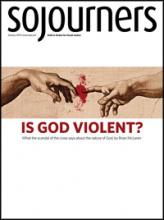In Blessed Are the Organized, Princeton University's Jeffrey Stout argues that democracy is imperiled: "The imbalance of power between ordinary citizens and the new ruling class has ... reached crisis proportions." He means crisis in the medical sense—the moment when the patient will either get better or die.
Stout's prescription? "[M]any more institutions and communities [must] commit themselves to getting democratically organized." We need to do a lot more old-fashioned, face-to-face organizing. More broadly, we need to engage the basic practices of democratic citizenship -- voting, but also listening to one another as we describe our struggles and our deepest concerns; peacefully assembling; and petitioning for redress of grievances.
Stout offers portraits of effective grassroots organizing in places as diverse as post-Katrina New Orleans and Marin County, California. Stout finds a marvelous example of the democratic practice of assembly among Katrina survivors gathered in the Houston Astrodome. The scene there was "surreal." The PA system was dominated by celebrities such as T.D. Jakes, with his apolitical message about God's provision. Organizers realized that they needed to get microphones into someone else's hands. Eventually, a less famous pastor took a microphone and preached a different kind of sermon: "I believe God expects us to do our part of the work too ... So if you've been a leader in New Orleans ... come forward and have a conversation ... about what's happening, and about doing something." In that moment, the PA system was transformed into a means of genuinely public address. Here, Stout argues, "we see ... a motley collection of displaced citizens reconstructing the rudiments of a democratic culture on the fly."
Read the Full Article
